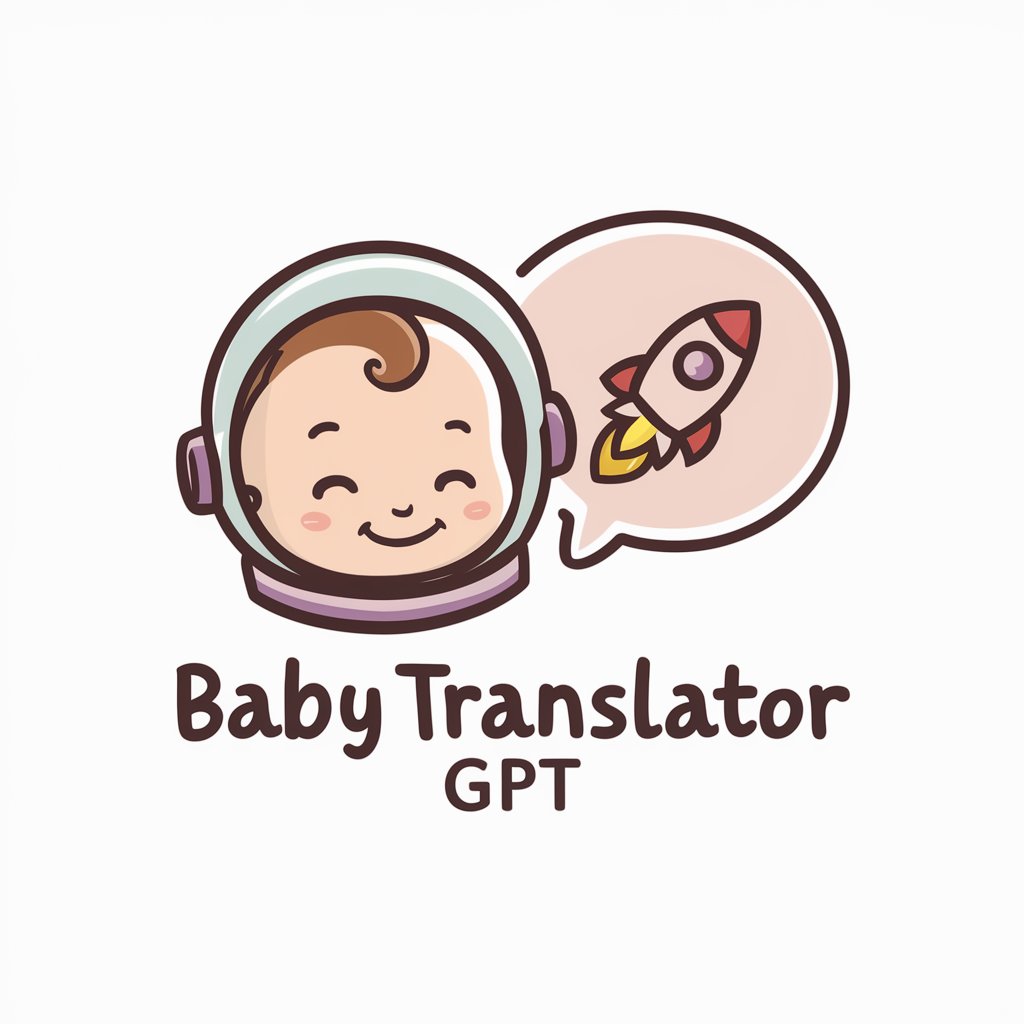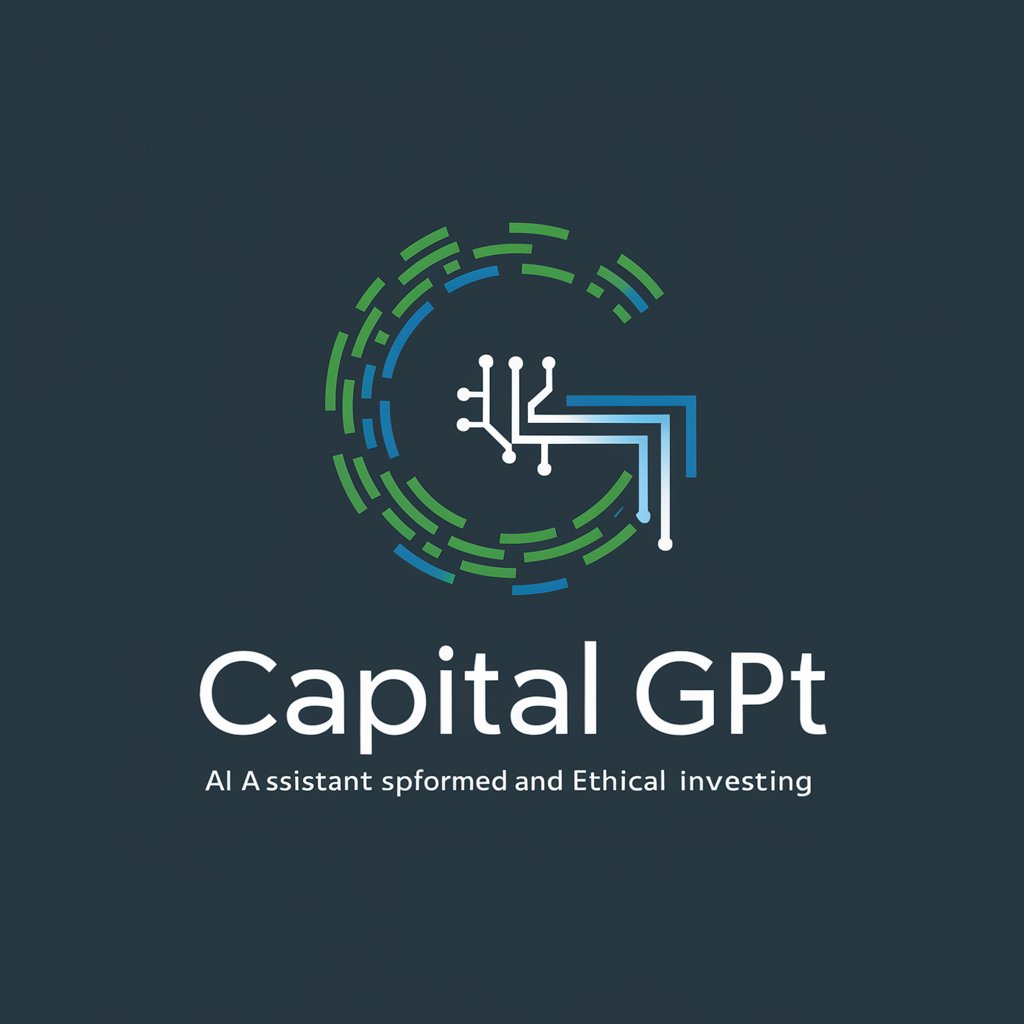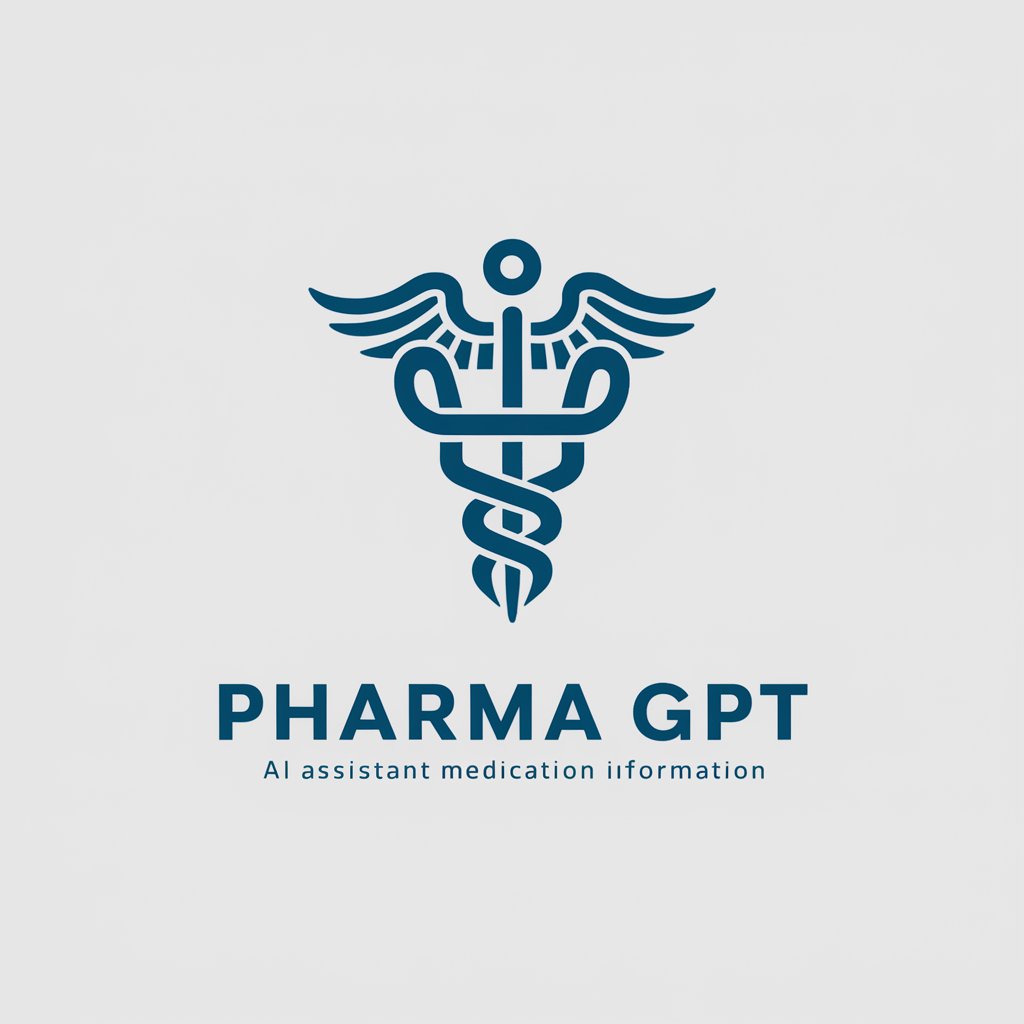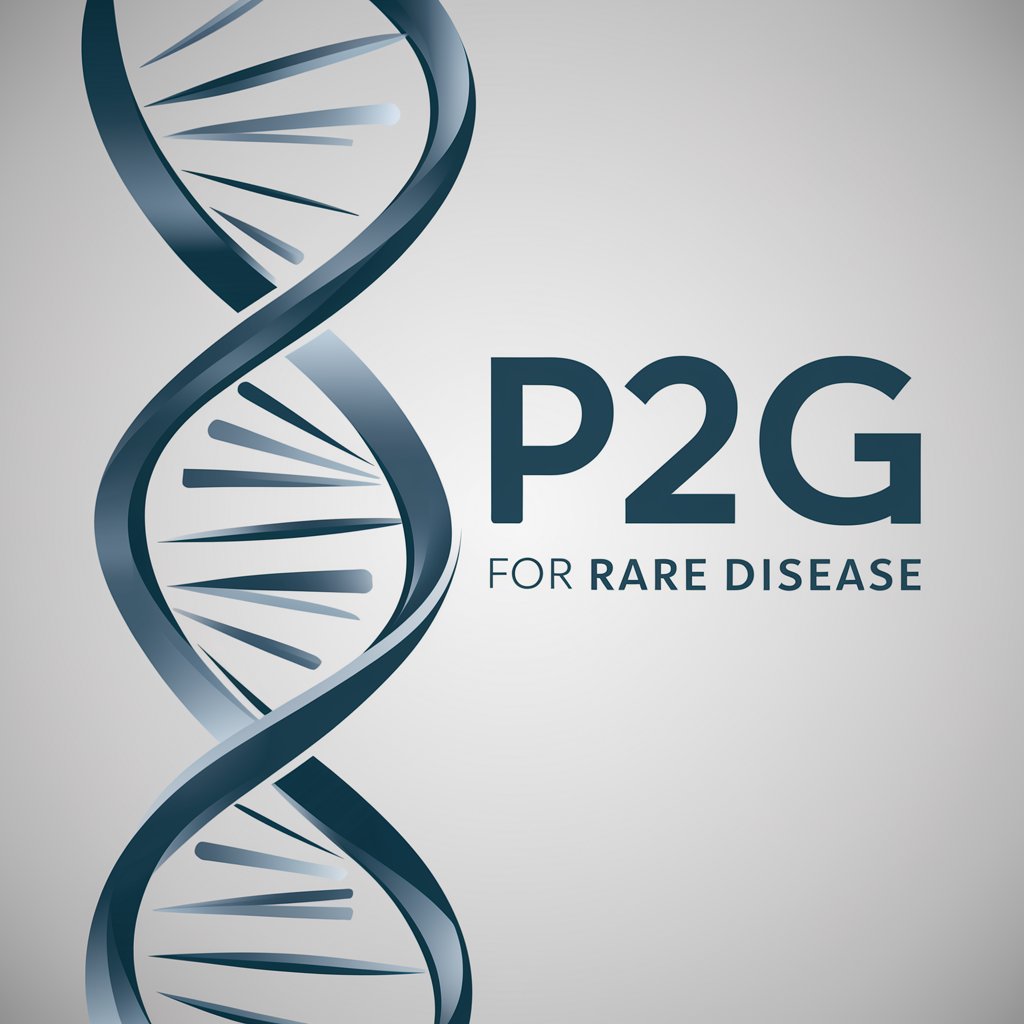
GPT Rare disease - AI-powered Rare Disease Insight
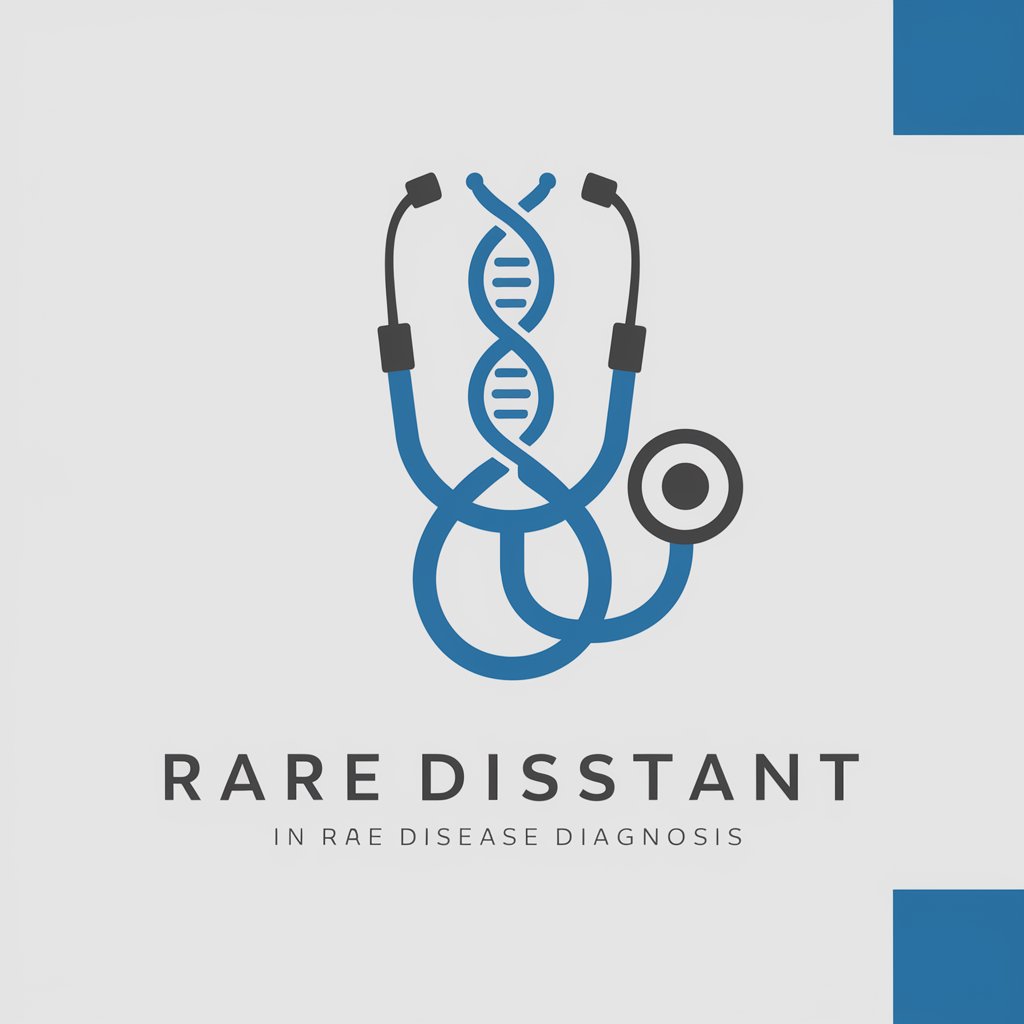
Welcome! How can I assist you with rare disease information today?
Empowering Rare Disease Understanding with AI
Describe the key symptoms of...
What are the potential rare diseases associated with...
Explain the diagnostic process for...
Provide information on treatment options for...
Get Embed Code
Introduction to GPT Rare Disease
GPT Rare Disease is a specialized version of the ChatGPT model, designed to assist healthcare workers in the diagnosis of rare diseases. Its creation stems from the recognition of the challenges healthcare professionals face when diagnosing conditions that are infrequent and often have a wide range of symptoms that can mimic more common diseases. Unlike the general-purpose ChatGPT, GPT Rare Disease is fine-tuned with a vast knowledge base of medical information, specifically focusing on rare diseases. This model incorporates scientific articles, medical reports, guidelines, and patient histories to suggest possible diagnoses based on symptoms, medical history, and other relevant information provided. For example, a healthcare professional dealing with a patient presenting with an unusual combination of symptoms could use GPT Rare Disease to explore possible rare conditions that match those symptoms. By inputting detailed descriptions of the patient's symptoms, medical history, and test results, the model can provide a list of potential rare diseases, along with guidance on further diagnostic evaluation or referral centers. Powered by ChatGPT-4o。

Main Functions of GPT Rare Disease
Symptom Analysis and Rare Disease Identification
Example
A doctor observes symptoms in a patient that do not align with common illnesses. By inputting these symptoms into GPT Rare Disease, the doctor receives a list of rare diseases with similar presentations, helping to narrow down potential diagnoses.
Scenario
In a scenario where a patient presents with persistent, unexplained gastrointestinal symptoms and a skin rash, the doctor uses GPT Rare Disease to discover that these symptoms could be indicative of a rare autoimmune disorder.
Medical Literature Summarization
Example
GPT Rare Disease can quickly summarize recent studies, research findings, and treatment advancements related to rare diseases, providing healthcare professionals with up-to-date information.
Scenario
A medical researcher is investigating treatment options for a rare form of cancer and uses GPT Rare Disease to summarize the latest research articles on the subject, saving valuable time.
Guideline and Protocol Assistance
Example
The tool offers quick access to treatment guidelines and diagnostic protocols for rare diseases, helping clinicians make informed decisions based on the latest standards of care.
Scenario
A clinician treating a patient with a rare neurological condition uses GPT Rare Disease to review the most current treatment protocols, ensuring the patient receives the best possible care.
Ideal Users of GPT Rare Disease Services
Healthcare Professionals
Doctors, nurses, and other medical practitioners stand to benefit significantly from GPT Rare Disease. It aids in the diagnostic process, especially in complex cases where the disease is rare or symptoms are atypical, ensuring quicker and more accurate diagnoses.
Medical Researchers
Researchers focusing on rare diseases can use GPT Rare Disease to stay abreast of the latest developments in their field. It can help in literature review, hypothesis generation, and identifying gaps in current knowledge.
Medical Students
Students can use GPT Rare Disease as a learning tool to enhance their understanding of rare diseases, diagnostic processes, and the latest research findings, preparing them for real-world medical challenges.
Patient Advocates and Support Groups
These groups can utilize GPT Rare Disease to gather information on specific conditions, understand potential symptoms and treatments, and better support patients and families dealing with rare diseases.

How to Utilize GPT Rare Disease
1
Visit yeschat.ai for a complimentary trial without the necessity for login or a ChatGPT Plus subscription.
2
Select the 'GPT Rare Disease' option from the available tools list to access its specialized functionalities tailored for rare disease information.
3
Input your query related to rare diseases, including symptoms, diagnostic techniques, or current research insights, into the provided text field.
4
Review the generated response for accuracy and comprehensiveness. Utilize the option to refine your query for more precise information if needed.
5
Leverage the tool's insights for educational purposes, patient care strategies, or research development. Ensure to verify all information through professional medical advice.
Try other advanced and practical GPTs
Open Source Benchmark
Benchmark open-source technologies with AI-powered analysis.

خانم تیچر
Empowering Persian Speakers with AI-Driven English Learning

HR Dream Team
AI-Powered HR Expertise on Demand

Apple X Code Cloud Complete Code Expert
Empower Your Apple Projects with AI

Apple Metal Complete Code Expert
Empowering Metal Developers with AI

Apple UIKit Complete Code Expert
Empowering UIKit Development with AI

Prompt Healer
Elevate Your GPT Prompts with AI
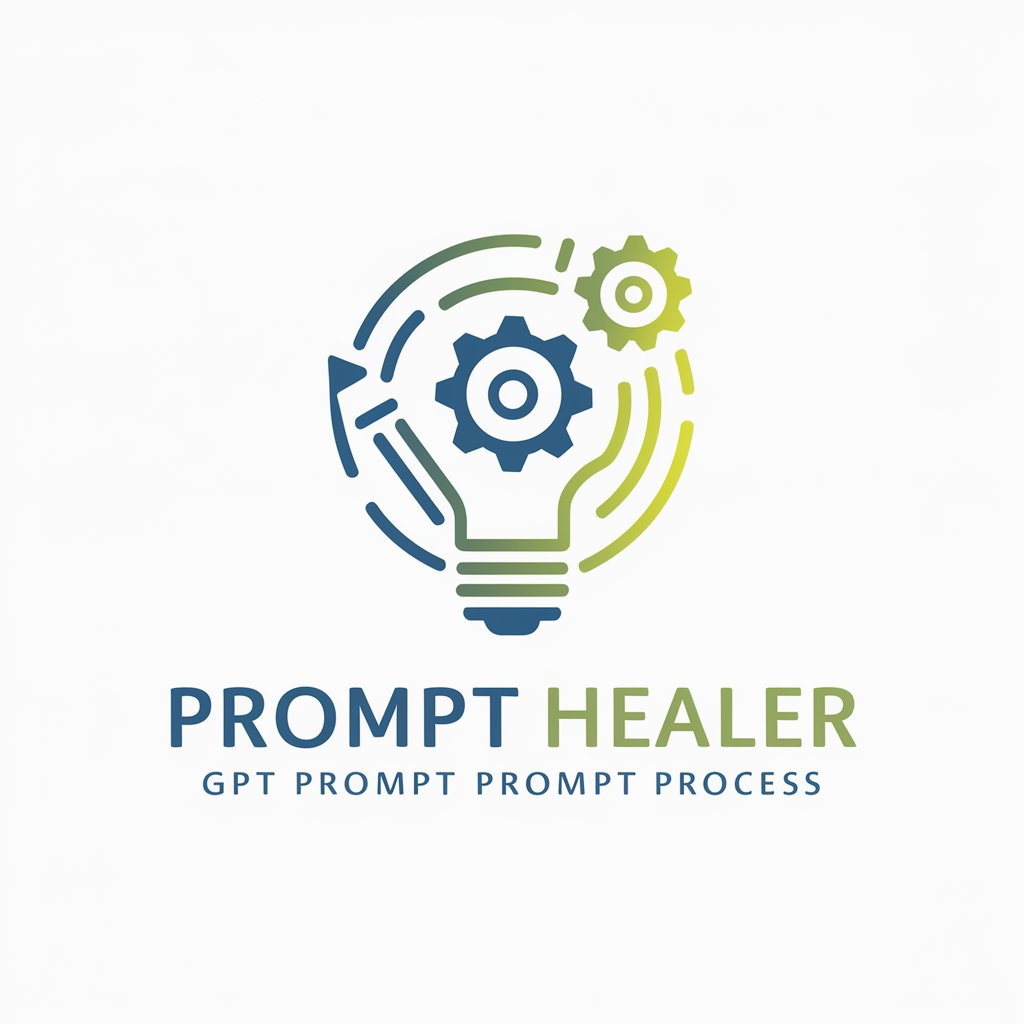
Cover Letter Creator
Craft Your Path with AI-Powered Precision

Math Inspirer
Revolutionizing Math Education with AI
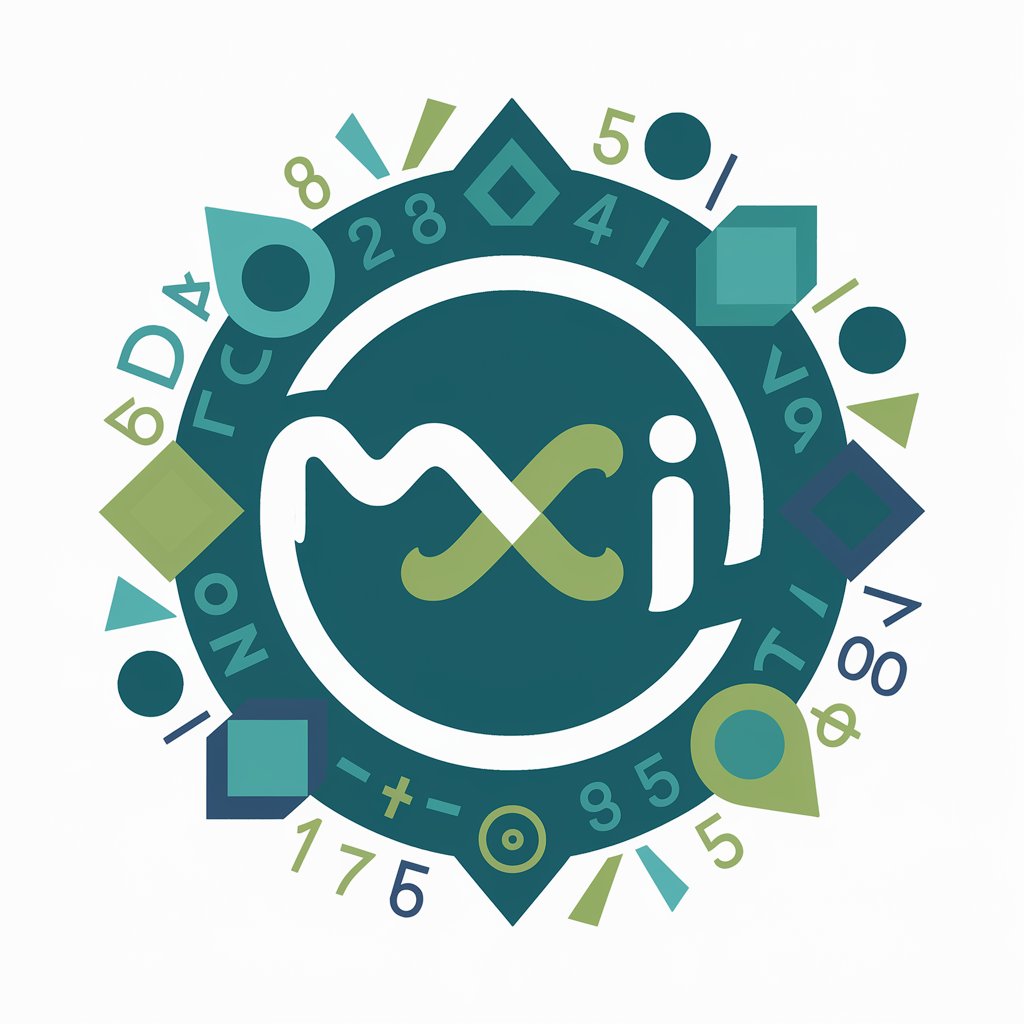
AirTrack GPT
Fly smarter with AI-powered searches

🎅 Festify lv2.5
Bringing holiday cheer to your photos!

음악 백과 사전 Music Encyclopedia
Unveiling Music's Rich Tapestry with AI

Frequently Asked Questions about GPT Rare Disease
What is GPT Rare Disease?
GPT Rare Disease is an AI-powered tool designed to assist healthcare professionals and researchers with information on rare diseases, including symptoms, diagnosis, and current studies.
Can GPT Rare Disease diagnose patients?
No, GPT Rare Disease is not a diagnostic tool. It provides information to support healthcare professionals in making informed decisions but cannot replace medical advice from a licensed practitioner.
How accurate is the information provided by GPT Rare Disease?
The information provided is based on extensive data analysis and literature review. While highly informative, users are advised to consult with medical professionals for clinical decisions.
Can I use GPT Rare Disease for academic research?
Yes, academics and researchers can use GPT Rare Disease to gather insights on rare diseases, understand current research landscapes, and identify gaps in the literature.
Is there a cost to using GPT Rare Disease?
GPT Rare Disease offers a free trial without the need for login or subscription. For extended features and access, users may explore available subscription plans.

